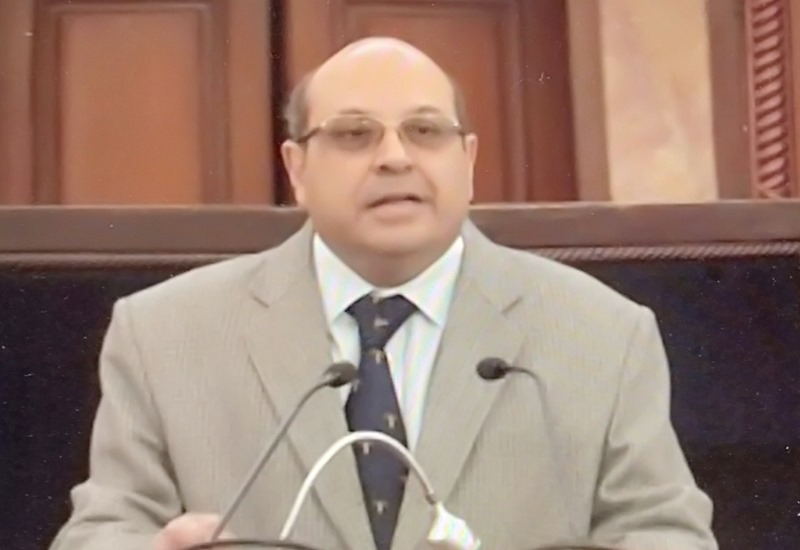Justice Rohinton Fali Nariman was appointed as a Judge of the Supreme Court of India on July 07, 2014.
Nariman’s retirement is due in August this year.
He is no ordinary Judge.
Article by Vineet Malik
Justice Markandey Katju (Ret’d), on his blog revealed that, Nariman was trained as a learned Parsi priest at a tender age of 12.
He was taught at the Harvard Law School by the stalwarts; Professors Laurence Tribe and Roberto Unger. He practiced Maritime Law in New York at Haight Gardner Poor and Havens for a year.
In November, 2016 Nariman while launching his book : The Inner Fire, left his audience spellbound when he spoke at length on drawing a parallel between various faiths and the importance of karma in life.
Lawyers swear by Nariman’s integrity and impeccable knowledge of international laws and bona-fide litigants are often seen walking out crying from his court.
Wrongdoer’s shiver for getting their pleadings converted to perjury as Nariman’s memory is compared with an elephant and resolve to dispense justice is always at fore.
Justice Madan Lokur, former Judge of the Supreme Court of India says, “Having known Rohinton from our days in the Law Faculty of Delhi University, I can confidently say, that he is a greater and more versatile genius.”
Nariman is often described as a “Rockstar Judge” after he struck down ‘draconian’ Section 66A of the Information Technology Act from the Constitution through his 123 page judgment.
The landmark judgement ruled vide Shreya Singhal Vs Union of India stated, “No one can tamper with the Constitution, Governments may come and Governments may go but Section 66A goes on forever.”
The ruling reflects intolerance of people who misused the law to gag the Constitutional provisions of right to freedom of speech and expression in India.
His another judgment on dissent in the matter of Kantaru Rajeevaru Vs Indian Young Lawyers Association resurrected the Constitutional values where-in it stated, “Women worshippers were thwarted despite a judgment ruled by the Supreme Court upholding their fundamental right to equality and worship at the Sabarimala temple.”
“It was up to the Government, it’s ministers and it’s officials to firm up and implement the judgment. The dissent, be it the Prime Minister or a Chief Minister, who failed to follow the judgment violated the rule of law.”
Nariman scrapped the 19th century law criminalising homosexuality vide Navtej Singh Johar & Ors. Vs Union of Indiawhich stated, “The whole object of fundamental rights is to give court power to strike down laws which a majoritarian governments, swung by votes, will not repeal. We don’t wait for majoritarian governments to repeal laws.”
One of the most recent controversial order passed by Nariman pertains to issuance of notice against a lower court Judge alleging contempt of the top court and contravention of statutory articles of the Constitution vide Manubhai Hargovandas Patel Vs Learned A.P Khanorkar, Metropolitan Magistrate, 68th Court, Mumbai, Maharashtra.
Dinshaw K. Tamboly, Chairman, The World Zoroastrian Organisation Trust says,
“Justice Rohinton Fali Nariman has grown in stature every time he has delivered a judgement, fortifying the necessity of what Caroline Kennedy has mentioned – “the bedrock of democracy is the true rule of law which means having an independent judiciary who can make decisions independent of the political winds that are blowing.
Justice Rohinton Fali Nariman has established that wisdom is not a product of schooling but lifelong attempt to acquire it.
Indian judiciary is very fortunate that it has in Justice Rohinton Fali Nariman a judge who believes and practices that justice must be done, even though the heavens may have to fall, that real peace does not mean the absence of conflict, but the presence of justice.
India survives as a democracy because Judges such as Justice Rohinton Fali Nariman and the likes of him have been dispensing real justice to one and all. His stint as a Judge of the highest Court of our land will be remembered for a very long time to come.”

